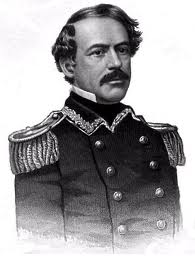April 9, 1865 was only the beginning of a difficult time in the life of Robert E. Lee.
The Surrender
It was a horrible day for General Robert E. Lee (1807-1870). He has been famously quoted as preferring to die a thousand deaths rather than to go see General Ulysses S. Grant.
But he bit the bullet, donned his last best uniform, complete with sash and sword, and rode off to a modest farmhouse in Appomattox Court House. In little more than an hour, it was all over. The terms were decided and signed, and for all intents and purposes, the four-year American Civil War, which destroyed the cream of a generation of men, was over.
Several more days passed as the business of signing paroles, the usual paperwork and reports, and formally discharging the remains of the Army of Northern Virginia was complete, and General Lee could discharge himself.
But in that interim, one more horrific deed changed every hope the South may have entertained for the “let ’em up easy” policy that President Abraham Lincoln had planned. An assassin’s bullet put an end to that.
Later in April
Appomattox Court House is about a hundred miles from Richmond, the Confederate capital whose charred buildings were visible for miles, and the smells of its self-inflicted burning were still in the air. General Lee rode with no escort nor entourage. Occasionally he encountered another ex-soldier en route in that direction, but past the nominal courtesies, it was a silent ride for the tired soldier. No one would dare to intrude on the General’s privacy.
Lee was only fifty-eight years old, but his white hair and beard, mostly acquired within the last three years, made him look ten years older. From the time he graduated West Point, more than thirty-five years earlier, he had been a soldier. Duty. Honor. Country. Once that country had been the United States, but in his heart, it was always Virginia, his native state, and the state of his distinguished forebears.
He was a quiet man, not given to close friendships. His personal habits were moderate, a sip of wine on occasion. At 24, he married Mary Anna Custis, the great-granddaughter of Martha Washington. They had seven children, and he no doubt loved his family deeply. But the Army was Lee’s greatest love.
The Dilemmas of General Lee
It is always difficult to project possible thoughts into long-dead silent men, but the General unquestionably had much on his mind on that long, long hundred mile journey.
Robert E. Lee was a deeply religious man, and assuredly was grateful that his life was spared, as well as the lives of his three sons, all of whom fought bravely and with honor. Their wounds would heal. He just as assuredly mourned those lost sons of America, North and South. Hundreds of thousands of them, at last count. He was never a man of hatred. Like all soldiers, battle memories are intensely private. To a man of silent disposition, even more so.
To a military officer accustomed to action and decision-making all his life, the limbo of not being in control was perhaps the most burdensome. The once-wealthy Lee-Custis family was now homeless. Their beautiful Arlington plantation overlooking Washington, DC had been confiscated early in the War. Then it was turned into a huge cemetery, making it forever uninhabitable. Another Virginia family property had been burned. Mary Lee, badly crippled by arthritis was now living in a small rented row home in Richmond.

A sketch of the Lee-Custis home at Arlington, prior to the Civil War. The property would be turned into a national cemetery.
Lee had no occupation and no property. Soldiering was all he knew, other than some mild plantation management. How was he to support his invalid wife and three unmarried daughters? He could not make any decisions in that regard.
The assassination of Abraham Lincoln presented yet another problem. The mood of the North had grown increasingly ugly, and there were strident calls for arresting, trying and hanging those rebels responsible for the War. General Robert E. Lee was at the top of the list of those expected to hang. He had signed his parole, pending law-abiding behavior. At least he could make one decision. He intended to honor his pledge and be an example to those who still looked to him for leadership. Nevertheless, the likelihood of his arrest was strong. He would have to prepare his family for the inevitable.
Then of course, there was his own private secret. His doctors had told him more than two years earlier that the pains and tingling in his arm from time to time were indicative of heart problems. He believed them, but he kept it to himself. That was another decision he could make. Nothing would be served by disclosing that information to his family – unless, or until such a time as it became imperative. They had enough cares as it was.
He would rest for a while in Richmond, enjoying the comfort of Mary and the girls, who he never got to see very often. He would stay there, at least until his sons could find him and the whole family could be reunited, and perhaps plan some kind of future.
He would wait. He would wait for the soldiers he assumed would be coming to arrest him. But mostly he would wait for the hand of Providence which he firmly believed would guide every decision.
Sources:
Fishwick, Marshall W. – Lee After the War: The Greatest Period in the Life of a Great American – Dodd, Mead & Co. 1962
Flood, Charles Bracelen – LEE: The Last Years – Houghton, Miffli Co. – 1981
http://www.civilwar.org/education/history/biographies/robert-e-lee.html
https://www.nps.gov/nr/travel/national_cemeteries/Virginia/Arlington_National_Cemetery.html








So touching. The more I read about Lee the more I admire him. Growing up in the north Lee was the “enemy.” Now I see him differently.
Reblogged this on Lenora's Culture Center and Foray into History.
Very well done. Thank you.